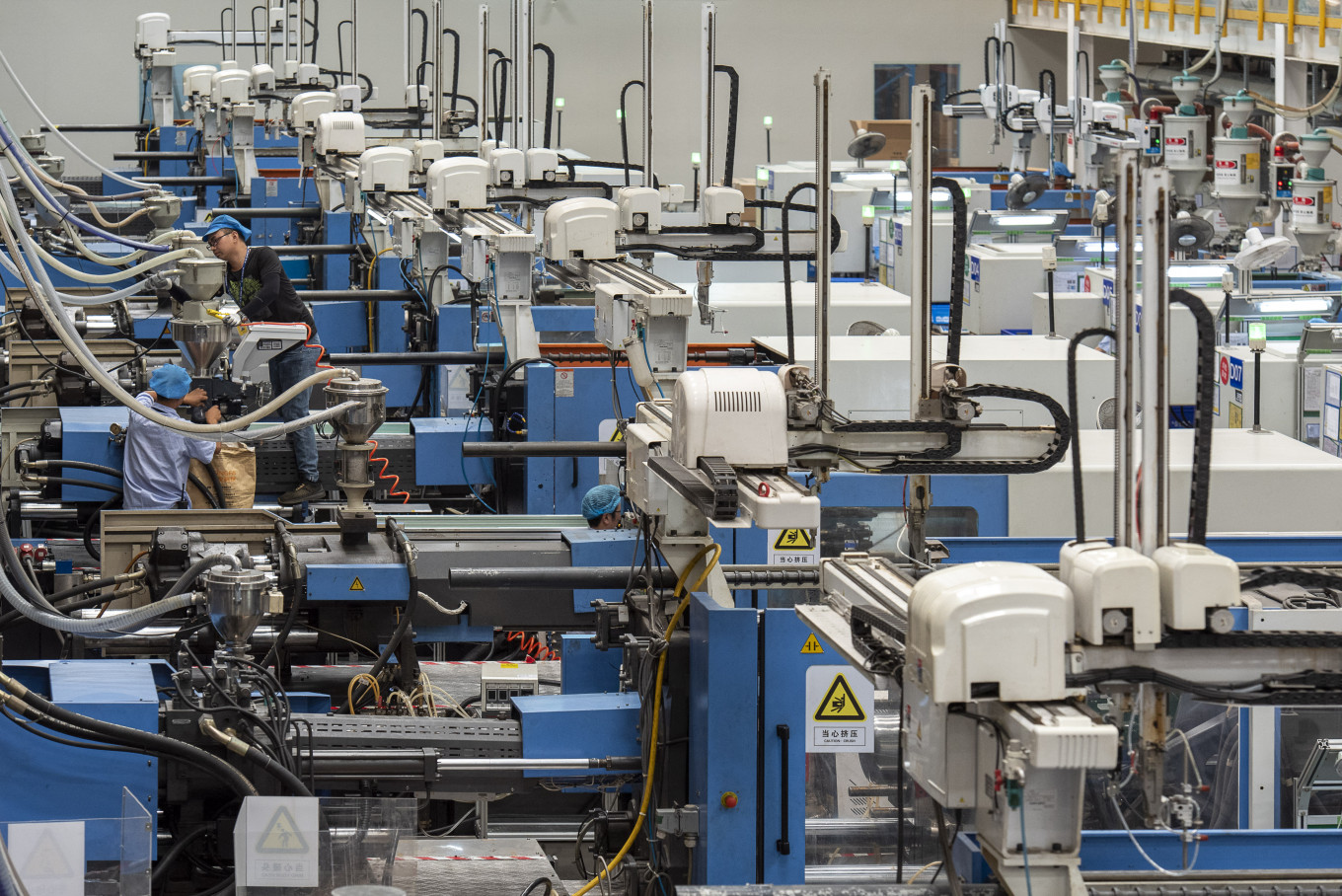Popular Reads
Top Results
Can't find what you're looking for?
View all search resultsPopular Reads
Top Results
Can't find what you're looking for?
View all search resultsChina's factory gate inflation hits highest level since 1996
Record high factory gate prices pile pressure on businesses already grappling with supply bottlenecks.
Change text size
Gift Premium Articles
to Anyone
C
hina's annual factory gate prices grew at their fastest pace on record in September, driven by energy curbs and soaring commodity prices, piling pressure on businesses already grappling with supply bottlenecks.
The producer price index (PPI) rose 10.7 percent from a year earlier in September, the National Bureau of Statistics (NBS) said on Thursday, the biggest rise since the data began to be compiled in 1996. Economists in a Reuters poll had expected the PPI to rise 10.5 percent after a 9.5 percent increase in August.
A widening power shortage in China, caused by the country's transition to clean energy, booming industrial demand and high commodity prices, have halted production at numerous factories including many supplying big global brands such as Apple.
The power crunch has hit output across the cement, steel and aluminum industries, while utility companies have struggled to keep up with post-pandemic power demand.
Against this backdrop, Chinese energy and petrochemicals futures rose to multi-year and record highs respectively on Monday, also fuelled by an oil price rally.
Thermal coal prices on the Zhengzhou Commodity Exchange gained 60 percent last month, and were last up 8 percent at 1,408.20 yuan (US$218.77) per ton amid a coal shortage.
Beijing has taken a raft of measures to curb record-high coal prices and ease the country's power crunch, including urging coal miners to boost output and manage electricity demand at industrial plants.
Despite this, coal prices have remained elevated, partly due to the shutdown of dozens of coal mines as floods hit China's top coal producing province of Shanxi.
NBS data also showed China's consumer price index (CPI) rose 0.7 percent year-on-year in September, smaller than the 0.9 percent gain forecast in the Reuters poll and a 0.8 percent rise in August.
Pork prices, a key component of China's CPI, dropped 46.9 percent year-on-year.
Beijing is buying up pork to support prices of the country's staple meat after they plunged earlier this year, leading to heavy losses for farmers.
Core inflation, which strips out volatile food and energy prices, reached 1.2 percent in September after being flat in August.










